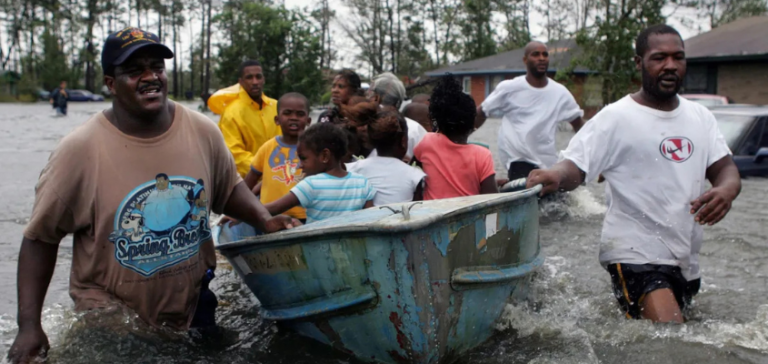Synergy Of The Sacrificed: Katrina And The Praxis Of Imperial Domination
Commemorating Katrina and its aftermath in 2025 comes at a time when a series of anthropogenic calamities from the genocide, ethnic cleansing and apartheid in Palestine, to the militarized federal takeover of Washington, D.C. (with the threat of more cities, such as Chicago, to follow) as part of a larger fascist consolidation effort are all exacerbated by an accelerated climate crisis that further elucidates the praxis of Imperial domination, which continues to oppress colonized and marginalized peoples across the world. Imperial domination can be described as the methods in which oppressive forces - including nation states and corporations (in many cases cooperating with one another)—exercise power over oppressed people through settlement, forced displacement, and other forms of socio-economic, environmental, and cultural warfare.











